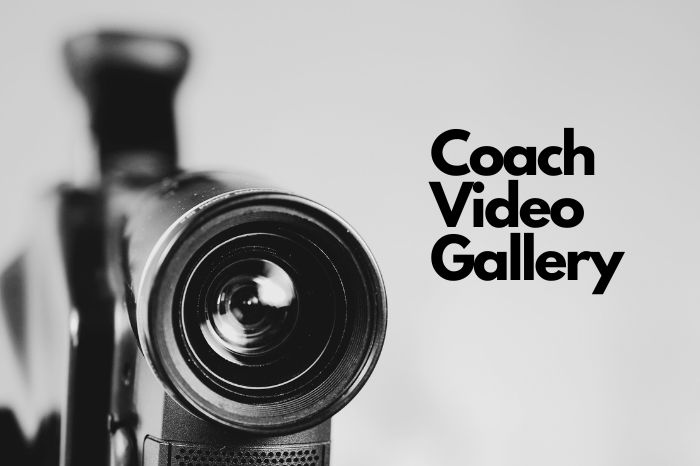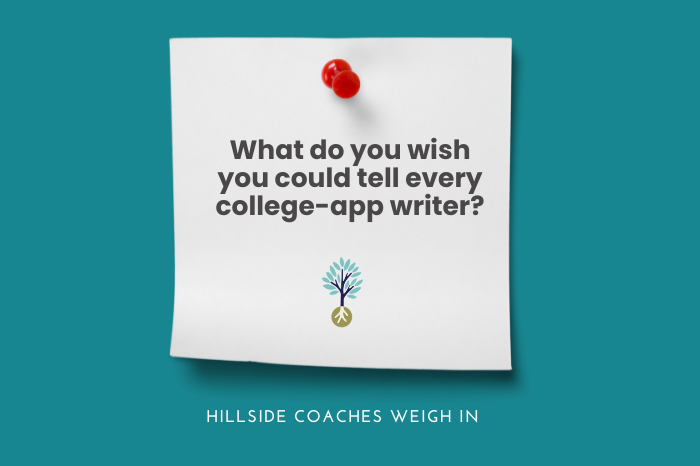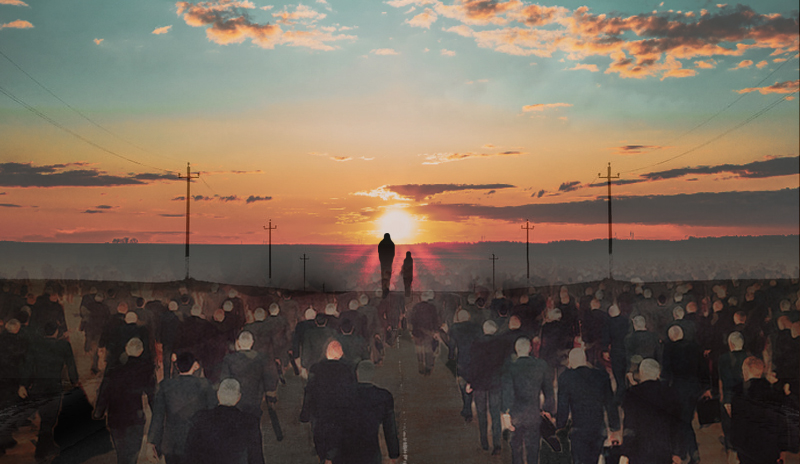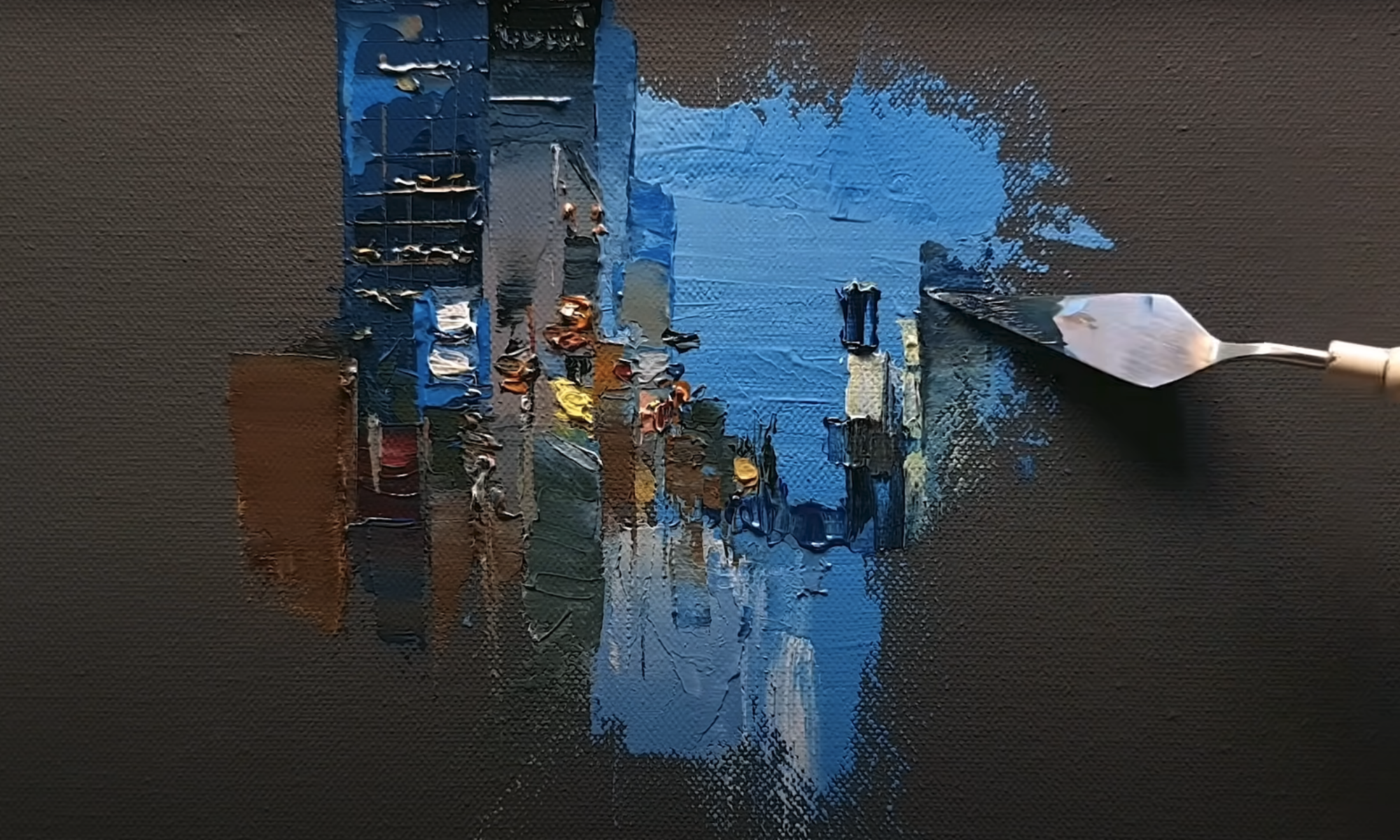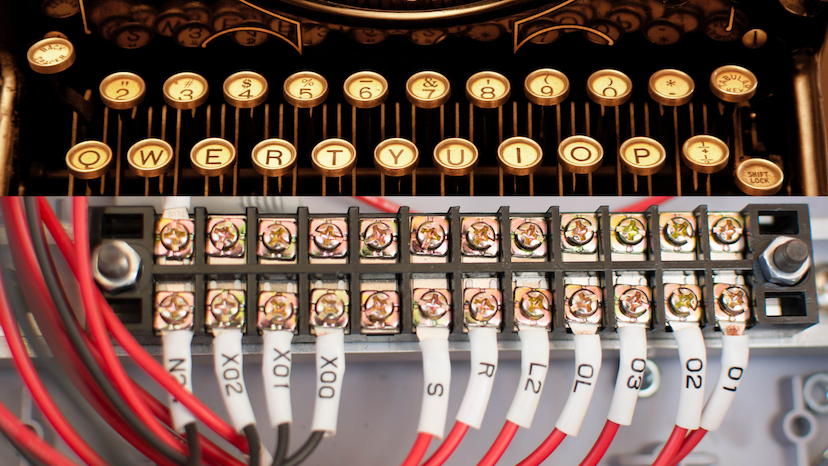At our Q&A for parents about the college essay, one question emerged as the clear favorite: How does a student choose a strong, unique topic? Is there a way to avoid sounding like thousands of other applicants?
Sentence x Sentence Dispatches from the Pursuit of Good Writing
Our process is based in conversation and instructive companionship. Our coaches begin the conversation by sharing what inspired them to write their blog posts. It's a great way to meet them!
Reflecting on their extensive work guiding college applicants, Hillside Coaches share essential insights. Recommended reading for any student beginning the project!
We emphasize student ownership of the writing process, and choosing a coach is a great place to start! Our best advice is to have the student visit our coach profiles to learn more about us.
Julie sits in my office, fidgeting with her notebook. She sighs, and it’s so exaggerated we both laugh. She seems ready to talk, so I lean forward at my desk. I’m listening. “I know the story I should write,” she says, almost conspiratorially. “It’s just not the story I want to write.”
My husband and two sons recently convinced me that we should watch The Last of Us, a hit HBO show about a zombie apocalypse caused by, of all things, fungus. And even better, it’s based on a video game. Seriously, guys?
After I bought my son his first set of good paintbrushes, the All-Knowing Algorithm spammed my social media with time-lapse videos of artists painting. As a writer, I can’t help it — I see metaphors for writing everywhere. I thought ... that's just like writing!
In eighth grade, I took an elective to prep for a yearly STEM competition. I was eager to build rubber-band-powered airplanes and roller coasters, but as we filed in on Day One, there were no materials or tools to be found. Instead, the teacher divided us into pairs. One of us had to describe an object, the other had to draw it.
I once helped a college applicant who wrote beautifully about a terrible place to swim. It was a stretch of bay marked by strong currents, stinging sea lice, and a pungent smell when the tide stole the water altogether.
I’ve always known how overwhelming the college application process can be, but this is the first time I’ve experienced it firsthand with my own child. I’m continually struck by the level of accompanying stress, but what I didn’t see coming? The stress I would feel as her parent.
My grandmother immigrated to the U.S. from Lebanon and, for years, worked as a seamstress in a uniform factory. By the time I was born, she lived alone in the three-bedroom duplex. Imagine my surprise, then, when I discovered an entire room dedicated to frivolities: a mannequin, a collection of yardsticks, and notebooks written in a cryptic hand.
The lights of the theater dimmed and all I could think was, "Is this really a good idea?" From a young age, I’d believed I was destined for a different kind of performance. But here I was, at age twenty-seven, backstage at Improv Boston, about to perform a sketch comedy show. Three years later, I would quit my electrical engineering job to pursue writing and teaching full time.

 ' />
' />

